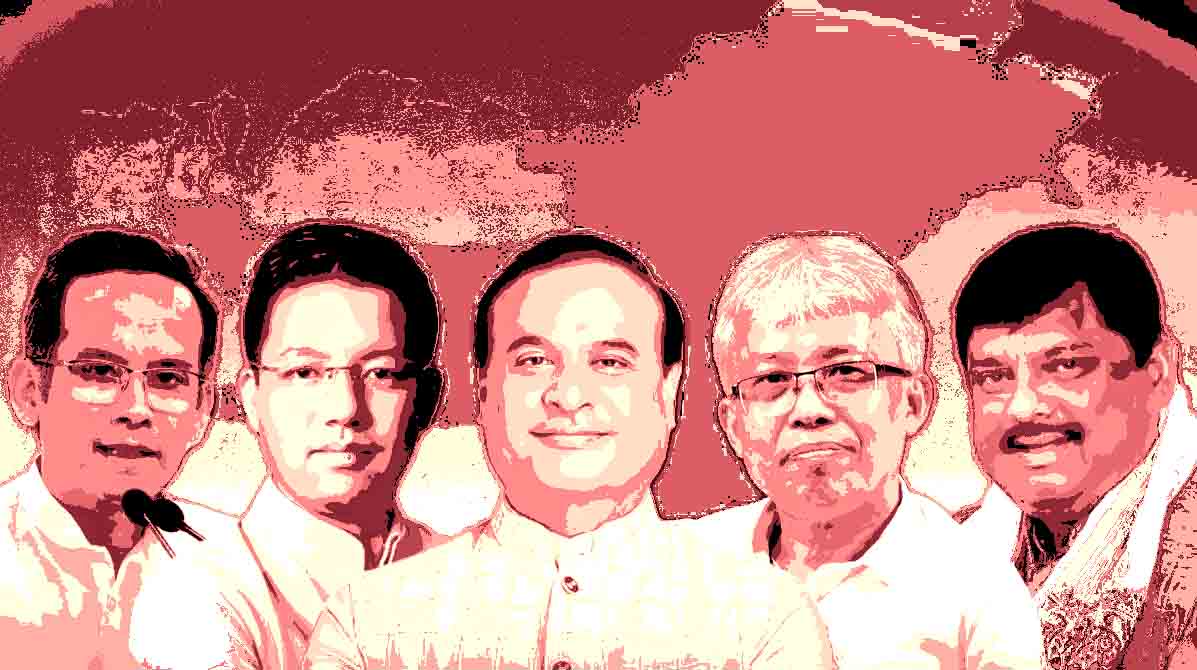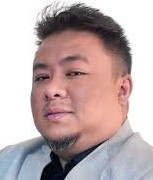It was late February 2024, and we were on our way to meet Shree Okram Ibobi Singh, the President of the Manipur Pradesh Congress Committee, after attending a seminar at Manipur University. I remember vividly that one of the senior leaders, Shree Kangujam Ranjit Singh, was also present. Inside a closed-door meeting, three men spoke for what felt like hours. When Professor Angomcha Bimol Akoijam – whom I lovingly and respectfully call Tamo Bimol – stepped out, something in his demeanour had changed. A few days later, while we were travelling together, he turned to me and asked, “Do you think it’s appropriate that I enter the fray?” My response came instinctively: “I always knew you would. What I meant was, who else would take up this historical responsibility?”
His entry into Indian electoral politics in 2024, then, was not a mere shift of profession. It was a culmination—an almost inevitable expression of a two-decade-long public and intellectual journey. And it was best understood, I believe, through Max Weber’s classic 1919 lecture, “Politics as a Vocation.” Akoijam’s decision was his “Here I stand; I can do no other” moment—a convergence of ethical conviction and political responsibility.
The Intellectual Grounding: Two Decades of Unflinching Critique
Since the early 2000s, Akoijam’s academic writings have articulated a clear and consistent critique of the Indian state’s role in Manipur. In his 2001 EPW article “How History Repeats Itself,” he argued that Manipur’s shared identity had been gradually dismantled by state interventions and ethnic nationalism. His diagnosis was sharp: a state acting more like a colonial master than a democratic mediator.
At the time, I had only begun to scratch the surface of these texts. It wasn’t until our deep night-long conversations during live-streams for the Manipur People’s Campaign on Resurgent Manipur that I fully grasped what he meant. AFSPA, for instance, wasn’t merely a draconian law; in his words, it was a “legal fiction”—a statute that eroded democratic institutions through the contagious nature of violence. These conversations shaped my own decision to help form the People’s Resurgence and Justice Alliance (PRJA) in 2017, a political platform grounded in the very critique Akoijam had been articulating for years.
His later writings in the Imphal Review of Arts and Politics refined these arguments. “Public Morality and the Death of Politics” wasn’t just an academic thesis—it was an indictment of the political class. “Dirty politics,” he said, was an oxymoron. True politics required public morality, and corruption was not merely a deviation but a total subversion.
In his 2022 CSDS lecture, “Archipelagic Memory,” he dissected the symbolic maneuvers of the state, such as renaming Mt Harriet to Mt Manipur. For him, this wasn’t a tribute but a nationalist script to create obedient subjects. As he always said, “Either we speak, or we are spoken for.”
The Turning Point: From Academic to Candidate
The violence in Manipur in 2023 was unprecedented. Ethnic tensions turned into what Akoijam called a “civil war situation,” characterized by statelessness and mass displacement. He made it clear: this wasn’t a failure of capacity but of will. The state had abandoned its Weberian claim to the monopoly of legitimate violence.
When Tamo Bimol began discussing the possibility of contesting elections, it didn’t come as a surprise to me. We had discussed the failure of existing political narratives so often that his entry into the electoral field felt, in retrospect, inevitable. And when he finally stood for the 2024 Lok Sabha elections, his platform was not a product of strategy meetings or campaign slogans—it was the culmination of decades of intellectual and ethical commitment.
He contested from Inner Manipur and won by over 100,000 votes—a record margin. And yet, he never called it a personal victory. He insisted it was a verdict from a people long silenced. “The hurt, the anger,” he said, “has thrown a nobody like me into the temple of democracy.”
From Protest to Parliament: Speaking Truth to Power
When Tamo Bimol stood to speak in his maiden parliamentary address near midnight, he invoked Nehru’s “Tryst with Destiny” and envisioned a parallel for the Northeast—a freedom from marginality. He challenged the Prime Minister to acknowledge the state’s suffering, decried partisan disarmament efforts, and rejected the unconstitutional logic of “buffer zones.”
These weren’t abstract arguments; they were the same critiques he had voiced for years, now delivered from inside the system. He had moved from shouting outside to speaking within.
A Life Lived for and In Politics: The Weberian Frame
Max Weber wrote that true politicians are guided by both an ethic of conviction and an ethic of responsibility. Akoijam’s political life exemplifies this synthesis. His convictions—about state violence, fractured identity, and historical justice—remained intact. But now, he bore the burden of transforming those convictions into policy.
His authority is not rooted in spectacle or populist theatrics. It is charismatic, in Weber’s terms—but a modern charisma grounded in moral clarity and intellectual consistency, the kind that emerges from years of speaking uncomfortable truths with unwavering integrity. But in truth, all three of Weber’s ideal types of legitimate authority—traditional, charismatic, and legal-rational—find meaningful resonance in him.
Traditionally, he has always invoked and practiced the Manipuri values of thakshi khasi and houna lonchat—the etiquette of deference to elders and civility in discourse. He often warned that when these behavioral norms are lost, Meitei society becomes more prone to anarchy and violence. This cultural grounding informs his sense of public morality and community obligation.
His charisma, then, is not a mystical force but a deeply earned trust, born of his rootedness in the people’s pain and his unwavering clarity of thought. He is, in essence, the public intellectual as legislator—a figure who bridges the gap between analysis and representation.
And while I’m not an expert in Weberian theory, it’s clear to me that he also grasps the significance of legal-rational authority. As a modern politician, he understands not just the mechanics of law and governance, but their moral underpinnings. His parliamentary interventions, framed with analytical precision and grounded in constitutional ethics, demonstrate a commitment to institutional integrity that goes beyond mere formalism.
The moment he chose to contest was, to me, his moment of volitional necessity—when turning away would have meant betraying everything he had built. As philosopher Harry Frankfurt would say, it was unthinkable for him to will otherwise.
Continuing the Journey: From Ideas to Action
Akoijam’s entry into politics offers a powerful model for regions like Manipur. It is not based on ethnic mobilization or patronage but on historical consciousness and ethical rigor. His role now is not only to critique but to deliver, to build.
Whether he can navigate the bureaucracy and resist co-optation remains to be seen. But even his presence reshapes what politics in the Northeast can mean.
Passion, Responsibility, and a Sense of Proportion
In the end, what sets Angomcha Bimol Akoijam apart is not merely his transition from scholar to statesman, but the way he fulfills what Max Weber called the essential triad of political vocation: passion, responsibility, and a sense of proportion. His passion is evident in his lifelong cause—the constitutional and moral restoration of a fractured polity. His responsibility is not rhetorical but enacted daily in the ethical weight he brings to parliamentary speech, policy questions, and public engagement. And his proportion—the ability to hold intensity without fanaticism, to speak truth without theatricality—is what allows him to stand apart in a system mired in spectacle. If conviction alone were enough, he would have remained a professor. But in taking responsibility, and doing so with proportion, he offers us a rare model of what politics could—and should—be.
For me, this article is more than an academic reflection—it is a personal history and a call: to speak, act, write, and live in continuity with our historical responsibilities.
Because sometimes, as Tamo Bimol reminded us during the darkest hours of the crisis, politics is not merely the pursuit of power—it is the courage to stand, and to see in crisis the possibility of transformation.
And say—Here I stand. I can do no other.












